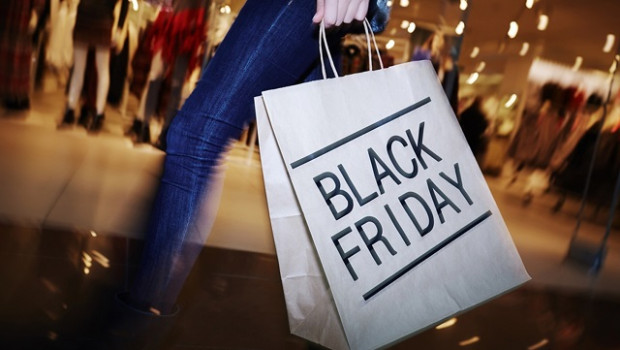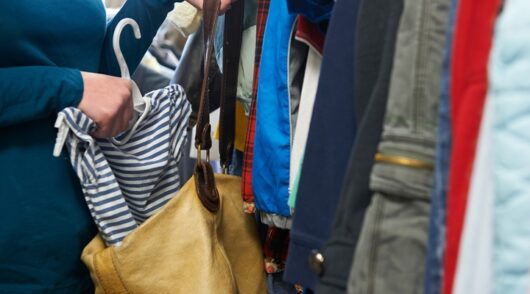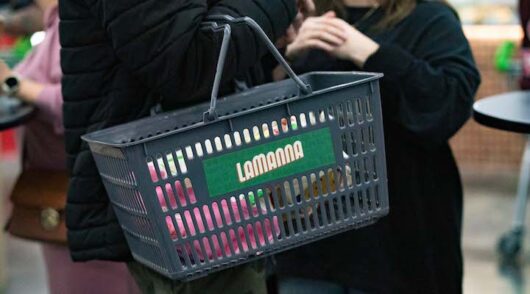By all accounts, Black Friday 2019 seems to have delivered a bumper weekend for retailers, physical and online alike. In fact, while the event is still largely viewed as an online sales event in Australia, bricks-and-mortar retailers potentially stand to gain more by participating. While official industry-wide figures aren’t yet finalised, the National Retail Association predicted $1.3 billion would be spent online over the four days between Black Friday and Cyber Monday – and a total of $5
$5 billion expected across all of retail.
According to NRA deputy chief executive Lindsay Carroll, feedback received from retailers over the weekend points to packed shopping centres and high footfall.
“At a number of precincts, there were so many shoppers that people couldn’t hear the Christmas carols, and simply finding a car park was difficult,” Carroll told Inside Retail Weekly.
“This further highlights the growing trend where consumers are doing Christmas shopping earlier than usual. Events such as Black Friday and Cyber Monday are providing the opportunity to knock off present shopping prior to the last-minute rush – and at bargain prices.”
According to Carroll, the NRA is optimistic that the festive season will deliver a solid start to retail trade in 2020, having predicted a $3.6 billion holiday period – 22.5 per cent up on 2018.
Better than Boxing Day
Despite the growth, according to Strandbags managing director Felicity MacGahan, Australian retail is only just beginning to understand the potential of Black Friday.
“I’ve been doing Black Friday for 20 years because I spent so much time in the US [at Gap Inc]. Every year it gets a little bit different, because it’s been such a secondary, ‘nothing’ thing here, whereas in the northern hemisphere, it is a macro event,” MacGahan told IRW.
“All the effort we put into Boxing Day here, it’s their version of that.”
However, MacGahan notes the burgeoning Black Friday is a more attractive offer for consumers as it allows them to shop early for Christmas presents, rather than waiting for Boxing Day sales.
Strandbags saw “incredible” double-digit comparable growth across online and bricks-and-mortar over the prior year, largely due to the brand steering into the holiday.
“I think any retailer that planned into it this year, versus reacting to it, would have seen strong growth this year, as we did,” MacGahan said.
“It will make November a really strong month for a lot of retailers, but there’s still a business to be had in December and you’ve got to keep your foot on it. The holiday season is not just about having one good month.”
It’s not about stock clearance
While the improved trading was certainly felt in shopping centres, Black Friday also made an impact online. TinyMe also saw a significant lift on Friday, which chief operating officer Ben Hare said was largely driven by increased customer awareness.
“There was a lot more buzz around Black Friday in the market this year,” Hare told IRW.
“Black Friday is an interesting phenomenon in that it is not at all driven by stock clearance, compared with other major sales periods like the Boxing Day sales.
“Customers are looking for substantial discounts on retailers’ best sellers. This is likely to have a significant margin impact for retailers as they incur increased costs scrambling to fulfil the sharp peak in orders on products that are offered at substantial discounts.
“[It’s] certainly cemented its position as a fixture in the retail calendar.”
However, Black Friday’s popularity is likely to be self-perpetuating, according to Hare. Customers see it as the best time to shop pre-Christmas and retailers can’t afford to not be involved due to the volumes while offering their best discounts.
“It will be interesting to look back on the whole pre-Christmas season and see how the profile has shifted,” Hare said.
Dissenting brands speak up
While many consumers were more than ready to snag a bargain over the weekend, others decided to stand up against the environmental and social impact of shopping events.
Consumers across Europe protested against Amazon’s impact on the environment and formed human chains to block delivery trucks outside Amazon depots.
However, it wasn’t only consumers standing up against the sales event.
Patagonia urged customers to avoid buying new products, and to instead donate to grassroots organisations working to preserve and restore nature – with the business offering to match donations up to $10 million.
Other global retailers, such as Ikea, Next, Asda, and Marks & Spencer didn’t offer discounts over the Black Friday period at all.
Flora & Fauna founder Julie Mathers said that while many retailers weren’t taking part in the event, the vegan-friendly retailer would offer discounts – but that it was renaming the event “Green Weekend”, and would plant a tree for every order on top of any carbon-offsetting the business already does.
“The reality is that people are spending money, so if they’re not buying from you, they’re buying from someone else,” ‘Mathers’ said.
“My view is give them great things to buy that make a difference… We believe this weekend is the perfect opportunity to encourage people to make kinder choices.”







